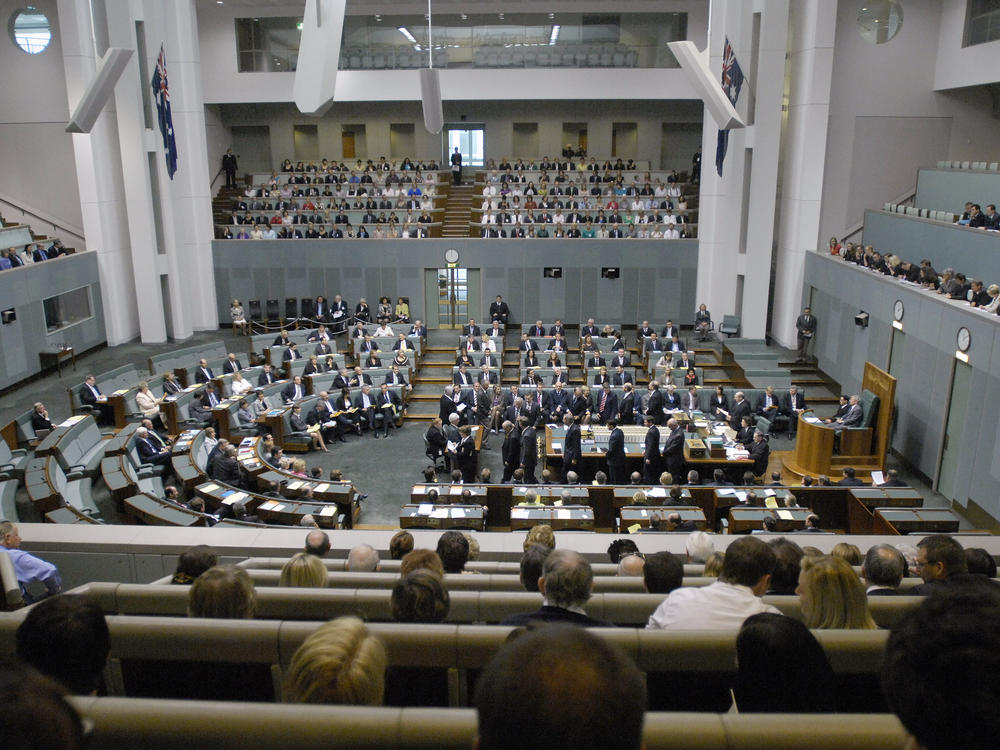Section Branding
Header Content
1 in 3 people working at Australia's parliament are sexually harassed, a report finds
Primary Content
A new report from Australia has found that one in three people working for parliamentary offices in the country has been sexually harassed, detailing a widely concerning culture of abuse in Australia's highest governmental offices.
The 456 page report, commissioned by Australia's government, included interviews and surveys with more than 1,000 participants who are current and former employees in parliament.
Titled "Set the Standard," the report showed that women experienced a higher rate of sexual harassment, bullying and sexual assault than men. Forty percent of women experienced sexual harassment there compared to 26% of men. More people who identify as LGBTQ+ experienced harassment compared with than those who identify as heterosexual — 53% compared to 31%.
The report also found that 63% of female parliamentarians experienced sexual harassment, compared to 24% of male parliamentarians. The number is far higher than the national average of women who report being sexually harassed, which is 39%.
Approximately 1% of respondents reported experience of sexual assault, but the survey did not ask them to detail their experience.
The power dynamics at play
The report explores some of the root causes of a culture of sexual harassment. More than half of those who reported sexual harassment said it was coming from someone who had a more senior position than them. Of the people who said they had been bullied, more than 75% said it came from someone more senior than them.
Respondents also noted that they didn't believe reporting instances of harassment and abuse would result in any change, and most said it would negatively impact their career and personal life. Only 11% of people who experienced sexual harassment reported it.
'Some people described feeling that the only options were to tolerate the misconduct or leave, rather than expecting that the misconduct could be addressed," the report said.
Massive #MeToo protests in Australia this year
The report detailing the extent of the culture of sexual misconduct in Australia's parliament comes just months after thousands protested in March in another wave of the #MeToo movement.
The protests were in part sparked by Brittany Higgins, a former staffer in parliament, who revealed she had been raped in a minister's office in 2019. Then, four more women came forward to say the same man raped them as well.
At around the same time, it came to light that Australian Attorney General Christian Porter was accused of raping a 16-year-old girl when he was a teenager. The victim died by suicide last year. Porter denied the allegation.
"This isn't a political problem. This is a human problem," Higgins said at the protests in March. "We've all learned over the past few weeks just how common gendered violence is in this country. It's time our leaders on both sides of politics stop avoiding the public and side-stepping accountability. It's time we actually address the problem."
Copyright 2021 NPR. To see more, visit https://www.npr.org.

